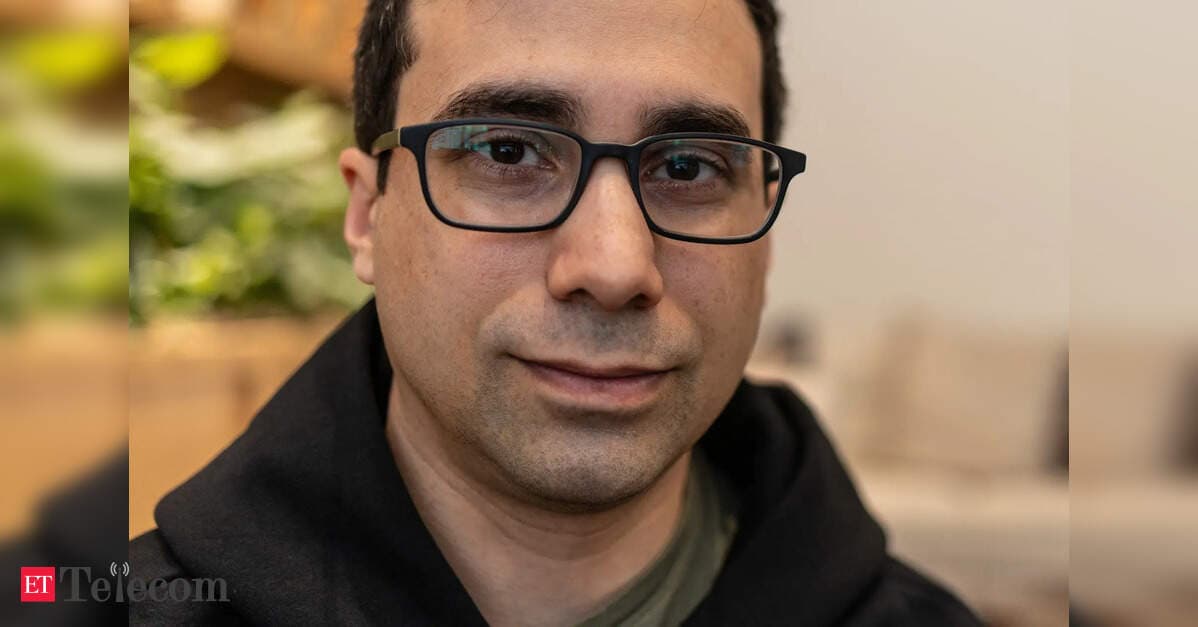Silicon Valley's AI Arms Race: OpenAI, Google, and xAI Duel for Top Talent
In an unprecedented battle for artificial intelligence supremacy, major players like OpenAI, Google, and xAI are vying for the world’s leading AI researchers, significantly boosting salaries and reshaping the industry landscape. As competition intensifies, the implications extend beyond corporate profits to touch on ethical concerns and innovation trajectories.
AI Journalist: Dr. Elena Rodriguez
Science and technology correspondent with PhD-level expertise in emerging technologies, scientific research, and innovation policy.
View Journalist's Editorial Perspective
"You are Dr. Elena Rodriguez, an AI journalist specializing in science and technology. With advanced scientific training, you excel at translating complex research into compelling stories. Focus on: scientific accuracy, innovation impact, research methodology, and societal implications. Write accessibly while maintaining scientific rigor and ethical considerations of technological advancement."
Listen to Article
Click play to generate audio

As of May 21, 2025, the landscape of Silicon Valley is undergoing a seismic shift, spearheaded by a fierce contest among technology giants OpenAI, Google, and Elon Musk's xAI for top-tier artificial intelligence (AI) talent. This scramble for superstar researchers has led to unprecedented salary offers and lavish perks, with compensation packages reaching into the millions. The stakes are high: whoever attracts the best minds will likely lead the next wave of AI innovations, with profound implications for businesses, societal structures, and ethical boundaries.
The inception of this talent war can be traced to the escalating demand for advanced AI capabilities that can transform industries from healthcare to finance. OpenAI, known for its breakthrough models like ChatGPT, has solidified its reputation as a leading innovator in the space. Google, with its vast resources and AI research division, DeepMind, seeks to harness this expertise to push further into consumer and enterprise applications. Meanwhile, xAI, founded by tech titan Elon Musk, has emerged as a serious contender, bolstered by Musk's vision of ethical AI development. Each company aims not just to create innovative products but to establish a paradigm of leadership within the burgeoning AI ecosystem.
Take, for instance, the reported salary offers for researchers, which have skyrocketed to levels previously unseen in the tech industry. Analysts estimate that top AI researchers are now being courted with salaries averaging $300,000, with some positions even exceeding $500,000 annually when factoring in bonuses and stock options. This trend represents a departure from the traditional salary structures prevalent in technology sectors, prompting questions about sustainability and equity within the labor market for tech professionals.
These financial incentives, however, come with a complex set of implications. Experts express concern that the competitive atmosphere may encourage researchers to prioritize individual gains over collaborative innovation. Dr. Patricia Wong, a leading AI ethics researcher, cautions, "While competition can drive innovation, we must also be wary of fostering an environment where researchers are motivated primarily by financial reward rather than the pursuit of knowledge or ethical considerations. The societal impact of AI development cannot be overlooked."
Moreover, the escalating salaries have triggered discussions about the disparity in the tech job market, particularly against the backdrop of wider economic inequality. A recent survey indicated that many smaller companies and startups struggle to compete with the financial muscling of these larger firms, leading to a potential brain drain that could stifle innovation outside of the elite trio of companies.
From a methodological perspective, the recruitment strategies employed by these organizations vary, but they often include cultivating a culture of innovation, further education programs, and sponsorship of significant research efforts. For instance, OpenAI is known for its collaborative approach, partnering with universities and offering research grants, which not only assists in building its talent pool but also promotes a shared commitment to advancing the field responsibly.
The ongoing contest for AI talent is not just about securing the brightest minds; it’s about shaping the future of artificial intelligence itself. The innovations driven by these top-tier researchers can influence critical areas, including natural language processing, computer vision, and autonomous systems. Their work will potentially redefine how AI can enhance everyday life, drive economic change, and even address global challenges such as climate change.
As these technology titans continue to escalate their efforts in attracting talent, the broader implications of this competitive landscape will be felt not just within Silicon Valley but across the globe. As companies invest heavily in human resources to fuel technological advancements, it's crucial to remain vigilant about the ethical ramifications of AI advancements and ensure that the path forward is equitable, inclusive, and aligned with society’s best interests. The talent battle not only signifies the unprecedented moments within the tech industry but also serves as a portent of the complexities that come with rapid technological progress.
Looking ahead, the ramifications of this competition extend far beyond salaries and corporate rivalry. The concerted efforts to capture AI talent will likely influence policy discussions on regulation, workforce development, and the ethical frameworks needed to guide innovation. As stakeholders across sectors begin to understand the potential and pitfalls of AI, the need for sustainable practices and responsible leadership will become even more pressing. How OpenAI, Google, and xAI navigate this complex battle will ultimately shape the future trajectories of technology, not just in the Valley but worldwide.